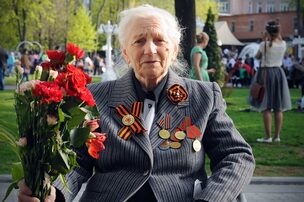 “Only crazy people go to therapy.” If I had a dime for every time I heard that statement, I could have retired safely at the age of twenty. The negative connotation and social stigma attached to mental health treatment in the Russian culture, and many other cultures across the globe and in America, is what initially drew me to this field.
“Only crazy people go to therapy.” If I had a dime for every time I heard that statement, I could have retired safely at the age of twenty. The negative connotation and social stigma attached to mental health treatment in the Russian culture, and many other cultures across the globe and in America, is what initially drew me to this field.
My family and I immigrated to the United States from the former Soviet Union and settled in northeast Philadelphia, a bustling community largely populated by Russian immigrants. I grew up in a relatively small and tight nit community; while I was happy to belong to a special community, I struggled with finding a balance between all-too-often polarized impulses from immigrant Russian vs. mainstream American cultures and lifestyles. I suffered from the way that the “Philly-Russian” lifestyle was in many ways self- segregated from broader forms of American community.
I was also stunned to find similar patterns in behavior among Russian immigrants in Sydney, Australia where I conducted an informal qualitative study of Russian immigrant acculturation while studying abroad during the summer of 2003. I visited various places known to cater to the Russian community and approached community-dwelling adults of various ages and background to request their participation in an unstructured interview regarding their experience with adaptation to Australian culture, society, and people. Despite our shared cultural heritage, I was received as an outsider and was not as readily accepted as I had anticipated. I had never been on this ‘other side of the fence’ before and my study turned into a struggle for role definition across ethnic and political barriers which I sought to break down.
The biggest challenge that I have faced has been acknowledging my own culturally-based biases and beliefs and understanding how my perceptions are colored by my own personal experience of immigration and acculturation. Identifying and working through feelings of displacement and associated anxieties has allowed me to become more in tune with my own emotional experiences, thereby allowing me to be better able to hear and understand the subjective experiences of others. I want to devote my life to improving communication, understanding, and acceptance of multicultural diversity.
